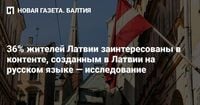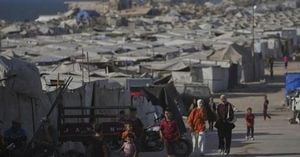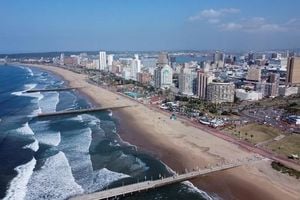A recent study conducted by the National Electronic Mass Media Council (NEPLP) reveals that interest in Russian-language media content among Latvian residents has slightly increased, now standing at 36%. This marks a modest rise from 35% in 2023. The survey, carried out by SIA Latvijas Fakti from September to November 2024, involved 1,522 permanent residents of Latvia aged 16 and older.
Interestingly, the study highlights that local Russian-language media content is particularly appealing to immigrants, with a staggering 72% of respondents in this demographic expressing a desire for such content. This suggests that the Russian-speaking community in Latvia, which has historically received significant state support in terms of media, continues to seek relevant information in their native language.
When examining the data by region, the highest interest in consuming Latvian media content in Russian is found in Latgale, where 59% of respondents indicated a preference for this type of content. In the capital city of Riga, 39% of residents showed interest, while 41% in the surrounding Riga region expressed similar sentiments. The numbers are lower in other regions, with 23% in Vidzeme, 19% in Kurzeme, and 25% in Zemgale.
However, the head of NEPLP, Ivars Abolinsh, has expressed concerns about the effectiveness of previous policies that focused on creating Russian-language content. He stated, "It is obvious that the previous policy focused on creating content in Russian has not yielded any results; on the contrary, it was a failure and only worsened the situation." Abolinsh emphasized that Latvia's state language is Latvian and that the government has no obligation to produce content in Russian or any other language.
Abolinsh further noted that for a long time, a comfortable situation was created for Russian speakers in Latvia, where state funds provided them with an alternative information space in Russian. However, he believes that this approach has not been beneficial. He argued, "Now we see the result," indicating that the reliance on public funding for Russian-language media has not generated positive outcomes.
In response to the survey's findings, Abolinsh asserted that NEPLP should more vigorously address the need to reduce the prominence of the Russian language in Latvian media. He stated, "While people may want pornographic content, public resources shouldn't be used for its creation," highlighting the need for a more responsible allocation of public funds.
As the debate over the role of Russian-language media in Latvia continues, Baiba Zuzena, the Chairman of the Board of Latvian Public Media (LSM), has also weighed in on the matter. She mentioned that the Constitutional Court is currently reviewing a dispute related to the provisions of the Law on Public Electronic Media concerning the use of minority languages. Zuzena emphasized the importance of considering national security, stating that a cohesive society living in a unified information space is crucial for Latvia's stability.
Looking ahead, LSM's medium-term strategy for 2026-2029 will include a concept for content in minority languages in public media. This suggests a potential shift in approach, aiming to balance the interests of minority language speakers with the overarching need for national cohesion.
In summary, while the interest in Russian-language media content in Latvia has seen a slight uptick, the ongoing discussions surrounding its funding and production reflect deeper societal and political tensions. With the NEPLP advocating for a reduction in the Russian language's role in media and LSM exploring new strategies for minority language content, the future of media in Latvia remains a topic of significant importance.




